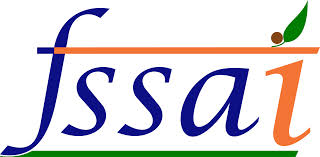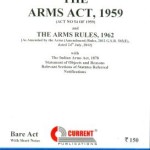A Comprehensive Guide to FSSAI Licensing & Registration: Process, Eligibility, and Importance
Introduction
Food safety is a paramount concern for governments, businesses, and consumers worldwide. In India, the Food Safety and Standards Authority of India (FSSAI) plays a pivotal role in ensuring that food products meet prescribed safety and quality standards. To achieve this, FSSAI mandates a licensing and registration system for food businesses. This article will provide a detailed insight into the FSSAI licensing and registration process, eligibility criteria, and why it is essential for food entrepreneurs and consumers.
Understanding FSSAI
The FSSAI, established in 2006 under the Food Safety and Standards Act, 2006, is an autonomous body under the Ministry of Health and Family Welfare, Government of India. Its primary aim is to regulate and oversee the manufacture, storage, distribution, sale, and import of food products to ensure they meet specific safety and quality standards.
Why FSSAI Licensing and Registration is Essential
Ensuring Food Safety: FSSAI licenses and registrations are instrumental in maintaining the safety and quality of food products in India. Compliance with FSSAI regulations ensures that food products are free from contaminants, adulteration, and unsafe additives.
Consumer Confidence: When consumers see the FSSAI logo on a food product or at an establishment, they gain confidence in the safety and quality of the product or service. This trust is crucial for businesses, especially in the food industry.
Legal Requirement: Under the Food Safety and Standards (Licensing and Registration of Food Businesses) Regulations, 2011, it is mandatory for all food businesses to obtain an FSSAI license or registration. Non-compliance can result in penalties and legal consequences.
Market Access: Many retailers, supermarkets, and e-commerce platforms require food businesses to have valid FSSAI licenses or registrations before they can sell their products. This provides market access and opportunities for growth.
Eligibility for FSSAI Licensing and Registration
The eligibility criteria for obtaining an FSSAI license or registration vary depending on the type and scale of the food business. FSSAI classifies businesses into three categories:
FSSAI Registration: This is for small-scale food businesses. To be eligible for registration, the following criteria apply:
Annual turnover does not exceed Rs. 12 lakhs.
Production capacity does not exceed 100 kg/liters per day.
Small retailers, petty manufacturers, and individuals involved in food-related businesses fall under this category.
State FSSAI License: Medium-sized food businesses fall under this category. The eligibility criteria are as follows:
Annual turnover is between Rs. 12 lakhs and Rs. 20 crores.
Production capacity ranges from 101 kg/liters to 2 MT/ML per day.
This category includes manufacturers, storage units, transporters, and distributors.
Central FSSAI License: Large-scale food businesses engaged in inter-state trade or import/export require a Central FSSAI license. The eligibility criteria for this category are:
Annual turnover exceeds Rs. 20 crores.
Production capacity is more than 2 MT/ML per day.
This category includes large manufacturers, importers, 100% export-oriented units, and food businesses with operations in multiple states.
The FSSAI Licensing and Registration Process
The process of obtaining an FSSAI license or registration involves several steps:
Application: Food businesses need to apply for either registration or a license based on their eligibility. The application can be submitted online through the FSSAI portal.
Documentation: The applicant must submit the necessary documents, which may include identity and address proof, proof of possession of premises, and details of the food products being handled or manufactured.
Inspection: FSSAI authorities may conduct an inspection of the premises to ensure compliance with safety and hygiene standards. This is more common for businesses applying for licenses.
Fees: Applicants must pay the requisite fees for registration or licensing. The fee amount varies based on the category and scale of the business.
Issuance: Upon successful inspection and document verification, the FSSAI license or registration certificate is issued. This certificate must be prominently displayed at the food business establishment.
Renewal: FSSAI licenses and registrations have a validity period. Businesses must renew their licenses or registrations before they expire to continue their operations legally.
Challenges and Benefits of FSSAI Compliance
Challenges:
Complexity: Navigating the FSSAI registration and licensing process can be daunting for first-time food business owners. It involves various forms, documents, and compliance checks that may be overwhelming without expert guidance.
Costs: Depending on the scale of the business and the type of license needed, the application fees can vary significantly. Larger businesses may need to invest substantial resources in obtaining and renewing their licenses.
Stringent Standards: While the stringent standards set by FSSAI are essential for food safety, they can pose challenges for businesses. Compliance requires consistent effort, quality control measures, and adherence to hygiene standards.
Renewal and Compliance Checks: Regular renewal and compliance checks are necessary to maintain an FSSAI license. Non-compliance during inspections can lead to penalties or suspension of the license.
Benefits:
Consumer Trust: FSSAI compliance assures consumers that the food they purchase meets safety and quality standards. This trust can lead to brand loyalty and repeat business.
Market Access: With an FSSAI license or registration, businesses can access a wider range of markets, including e-commerce platforms, export opportunities, and collaborations with established retailers.
Competitive Advantage: FSSAI compliance can set a business apart from competitors. It demonstrates a commitment to quality and safety, which can be a powerful marketing tool.
Legal Protection: FSSAI registration or licensing provides legal protection. It reduces the risk of facing legal issues related to food safety and standards.
Common Mistakes and Tips for a Smooth FSSAI Application Process
Incomplete Documentation: Ensure that all required documents are submitted correctly and completely. Missing documents can delay the application process.
Choosing the Wrong Category: Classify your business accurately based on turnover and production capacity to avoid rejection or complications in the future.
Ignoring Renewals: Keep track of the license or registration expiry date and renew well in advance to prevent disruptions in your business operations.
Inadequate Food Safety Measures: Implement stringent food safety and quality control measures within your establishment to pass inspections with ease.
Consult Experts: If you are uncertain about the process or eligibility, consider consulting with experts or professionals well-versed in FSSAI regulations.
In conclusion, obtaining an FSSAI license or registration is not just a legal requirement; it’s a crucial step in ensuring the safety and quality of food products in India. Food businesses of all scales, from small local vendors to large manufacturers and exporters, must comply with FSSAI regulations. While the process may seem daunting, it is essential for consumer safety and trust, market access, and business growth. By understanding the eligibility criteria, following the correct application process, and maintaining compliance, food entrepreneurs can navigate the FSSAI system successfully and contribute to a safer and more reliable food industry in India.
International food safety rules and regulations are crucial to ensure the safety and quality of food products traded and consumed globally. These regulations are established to protect public health, promote fair trade practices, and facilitate the international movement of food products. Several international organizations and agreements govern food safety rules and regulations at the global level. Here are some of the key ones:
Codex Alimentarius Commission (CAC):
The Codex Alimentarius Commission is jointly established by the World Health Organization (WHO) and the Food and Agriculture Organization (FAO) of the United Nations.
It develops international food standards, guidelines, and codes of practice to ensure the safety, quality, and fairness of food trade worldwide.
These standards cover a wide range of topics, including food additives, contaminants, labeling, and hygiene.
World Trade Organization (WTO):
The WTO oversees international trade agreements, including the Agreement on the Application of Sanitary and Phytosanitary Measures (SPS Agreement).
The SPS Agreement sets out the rules for food safety and animal and plant health standards in international trade.
It encourages countries to base their food safety measures on scientific principles and not to use them as unjustified trade barriers.
International Food Safety Authorities Network (INFOSAN):
INFOSAN is a global network of food safety authorities established by the WHO and FAO.
It facilitates the rapid exchange of information during food safety emergencies and helps countries manage international food safety incidents.
4. International Organization for Standardization (ISO):
ISO develops international standards for a wide range of industries, including food safety.
ISO 22000 is the standard for food safety management systems, helping organizations ensure the safety of food throughout the supply chain.
5. World Health Organization (WHO):
WHO provides leadership on international public health issues, including food safety.
It offers guidelines and recommendations for safe food handling, storage, and preparation to prevent foodborne illnesses.
6. Food and Agriculture Organization (FAO):
FAO conducts research and provides technical assistance to member countries in areas related to food safety and agriculture.
It helps countries develop and implement food safety programs and policies.
7. Regional Agreements:
Various regions and trading blocs, such as the European Union, have their own food safety regulations and standards that must be adhered to for products to be sold within those regions.
8. National Regulatory Authorities:
Each country typically has its own national regulatory authority responsible for enforcing food safety regulations within its borders. These authorities develop and implement regulations in line with international standards.
It’s important to note that international food safety regulations continue to evolve to address emerging risks, technological advancements, and changing global trade patterns. Businesses involved in the international food trade must stay informed about these regulations, comply with them, and prioritize food safety to protect consumers and maintain access to global markets.
9. Food Labeling and Allergen Declarations:
International regulations often mandate clear and accurate food labeling. This includes information on ingredients, allergens, nutritional content, and origin.
Allergen declarations are particularly important to protect individuals with food allergies.
10. Maximum Residue Limits (MRLs) for Pesticides and Chemicals:
International organizations, including the Codex Alimentarius Commission, establish MRLs for pesticides and chemicals used in agriculture to ensure that residues on food products do not exceed safe levels.
11. Foodborne Disease Surveillance and Outbreak Response:
Collaboration between countries and international organizations is critical for tracking and responding to foodborne disease outbreaks, as contaminated food can cross borders.
Timely reporting and information sharing are essential to prevent further illnesses.
12. Risk Assessment and Risk Communication:
Many international food safety regulations are based on risk assessment principles. This involves evaluating potential hazards associated with a food product, determining their risk, and implementing appropriate control measures.
Effective risk communication ensures that consumers, producers, and regulators are informed about food safety risks and measures to mitigate them.
13. International Trade Certification and Documentation:
To facilitate international trade, countries often require certification and documentation that attest to the safety and quality of food products.
Certificates of origin, health certificates, and inspection reports may be necessary for food exports and imports.
14. Emerging Technologies and Food Safety:
Advancements in food processing and packaging technologies, such as nanotechnology and blockchain, are being explored to enhance food safety and traceability.
15. Global Supply Chain Management:
Food supply chains have become increasingly globalized. Ensuring food safety in complex supply chains is a priority, and international regulations provide guidelines for this.
16. Capacity Building and Technical Assistance:
Many developing countries may require support and technical assistance to strengthen their food safety systems and comply with international regulations.
International organizations and more developed nations often provide assistance in this regard.
17. Food Fraud and Authenticity:
International regulations and standards address issues related to food fraud, including adulteration and mislabeling, to maintain the authenticity of food products.
18. Climate Change Impacts:
Climate change can affect food safety by altering the distribution of foodborne pathogens, introducing new risks, and impacting food production and supply chains. International efforts are underway to address these challenges.
In an increasingly interconnected world, compliance with international food safety rules and regulations is essential for safeguarding public health, promoting fair trade practices, and maintaining consumer trust. Food businesses, regulatory authorities, and international organizations all play crucial roles in upholding these standards and ensuring that food products are safe and of high quality, regardless of their country of origin or destination.




